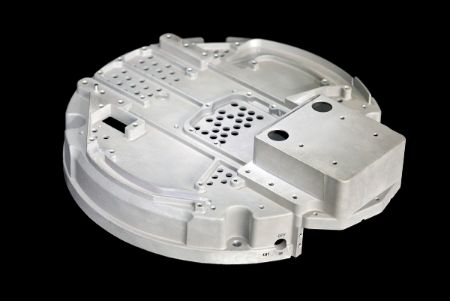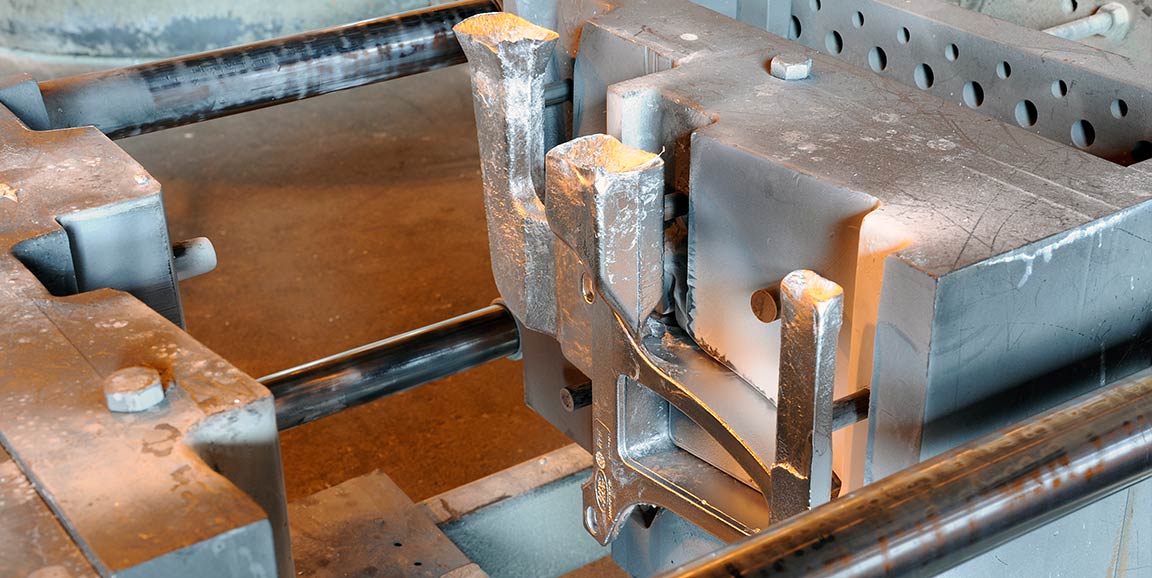How Aluminum Foundry Helps Create High-Precision Components for Every Industry
Wiki Article
Discover the Benefits of Aluminum Casting in Modern Manufacturing
Aluminum casting has arised as a critical procedure in contemporary manufacturing. Its light-weight yet durable nature presents significant benefits for various markets. The capability to achieve elaborate designs and preserve tight tolerances includes in its charm. Aluminum Casting Company. Furthermore, the cost-effectiveness and environmental advantages make it a sustainable choice. As producers seek innovative solutions, the duty of aluminum casting remains to evolve. What particular applications and benefits wait for exploration in this vibrant field?Solid yet lightweight: The Benefits of Aluminum
Although lots of materials are made use of in production, aluminum attracts attention due to its impressive mix of lightweight homes and extraordinary toughness. This distinct attribute makes aluminum an optimal selection for different applications, specifically in sectors such as automobile, aerospace, and building and construction. Its reduced density permits for less complicated handling and transportation, adding to minimized power consumption during manufacturing and assembly procedures.Aluminum's strength-to-weight proportion is impressive, making it possible for manufacturers to create sturdy components without adding unneeded bulk. This characteristic is specifically valuable in fields where weight reduction can result in improved gas effectiveness and general performance. In addition, aluminum's resistance to corrosion improves the longevity of products, better strengthening its allure in modern production.
Eventually, the lightweight yet strong nature of aluminum settings it as a recommended product, promoting innovation and efficiency across multiple fields. Manufacturers progressively recognize that these benefits can result in substantial improvements in layout and functionality.
Precision and Intricacy in Design
As makers embrace the capabilities of aluminum casting, they uncover new opportunities for precision and complexity in layout. This production procedure allows for the creation of intricate forms and detailed features that typical methods typically battle to attain. The fluidity of molten aluminum enables it to load intricate molds, causing elements with limited resistances and great surface finishes.This precision is especially useful in industries such as aerospace and vehicle, where exact specs are important for performance and safety and security. Aluminum casting additionally suits cutting-edge layouts that improve functionality without jeopardizing structural honesty.

Cost-Effectiveness and Performance
Cost-effectiveness and effectiveness are vital considerations for manufacturers discovering aluminum casting as a production approach. Aluminum casting offers significant cost advantages due to its lower product expenses compared to various other metals (aluminum casting). The light-weight nature of aluminum lowers delivery and handling costs, and its excellent thermal conductivity enables quicker cooling times during the casting procedure, improving overall production rateIn addition, aluminum's versatility allows producers to produce complicated shapes and styles, decreasing the requirement for extra machining or assembly. This streamlining of production not just minimizes labor costs however likewise reduces preparations, allowing firms to respond quickly to market needs.
In addition, the sturdiness and rust resistance of aluminum spreadings add to longer item life expectancies, minimizing replacement expenses with time. Because of this, makers can accomplish an equilibrium of premium output and decreased functional costs, making aluminum casting an increasingly attractive alternative in modern production.
Ecological Sustainability of Aluminum Casting
Aluminum casting sticks out as an environmentally sustainable production option, specifically as a result of its recyclability and lowered ecological footprint. The process enables for the reliable use of aluminum, a product that can be recycled forever without shedding its homes. This characteristic considerably decreases the need for virgin aluminum, thereby decreasing and conserving all-natural resources energy consumption connected with extraction and processing.
Applications Across Industries: From Automotive to Aerospace
While varied markets remain to look for cutting-edge materials for production, aluminum casting has confirmed to be a versatile service throughout fields such as vehicle and aerospace. In the auto industry, aluminum castings add to lightweight car styles, enhancing gas efficiency and performance. Components like engine blocks, transmission housings, and wheels take advantage of aluminum's strength-to-weight proportion.In aerospace, aluminum casting plays a substantial role in producing intricate components that require high resilience and low weight. Aircraft elements such as brackets, landing equipment, and structural frames make use of aluminum for peak performance and security.
The versatility of aluminum casting permits it to cater to aluminum casting various other markets, consisting of customer electronics, aquatic, and industrial machinery. This flexibility not just fulfills the details needs of various applications yet likewise supports recurring development in manufacturing procedures. Because of this, aluminum casting remains a principal in modern-day production throughout numerous industries.
Often Asked Inquiries
How Does Aluminum Casting Compare to Various Other Metal Casting Processes?
Aluminum casting offers exceptional strength-to-weight proportions, faster air conditioning rates, and excellent rust resistance contrasted to other steel casting processes. These advantages make it excellent for numerous applications, enhancing efficiency and performance in production.What Are the Common Lead Times for Aluminum Casting Projects?
Typical lead times for aluminum casting jobs range from two to 8 weeks, relying on aspects such as complexity, order size, and manufacturing ability. Reliable preparation can help decrease delays and enhance task timelines.Can Aluminum Casting Be Used for Intricate Layouts?
Aluminum casting can indeed accommodate detailed designs. aluminum casting. Its fluidity permits comprehensive patterns and shapes, making it ideal for complex parts in numerous markets. This versatility enhances style freedom while preserving architectural honesty and performanceWhat Post-Processing Options Are Available After Aluminum Casting?
Post-processing choices for aluminum casting consist of machining, brightening, surface treatments, anodizing, and welding. These techniques improve the finish, improve dimensional accuracy, and rise corrosion resistance, thereby enhancing the end product's performance and aesthetic charm.How Do Temperature Level Adjustments Impact Aluminum Casting High Quality?
Temperature modifications significantly effect aluminum casting high quality by affecting fluidness, solidification rates, and prospective flaws. Fast cooling can lead to increased brittleness, while excessive warmth may trigger warping or incomplete filling of molds during casting.Aluminum casting has actually emerged as an essential procedure in contemporary production. As manufacturers embrace the abilities of aluminum casting, they uncover new opportunities for precision and complexity in layout. Aluminum casting procedures normally produce fewer greenhouse gas discharges compared to other metal casting techniques. While diverse sectors continue to look for cutting-edge products for production, aluminum casting has actually shown to be a functional option across markets such as vehicle and aerospace. In the auto market, aluminum spreadings add to lightweight lorry styles, improving fuel efficiency and performance.
Report this wiki page